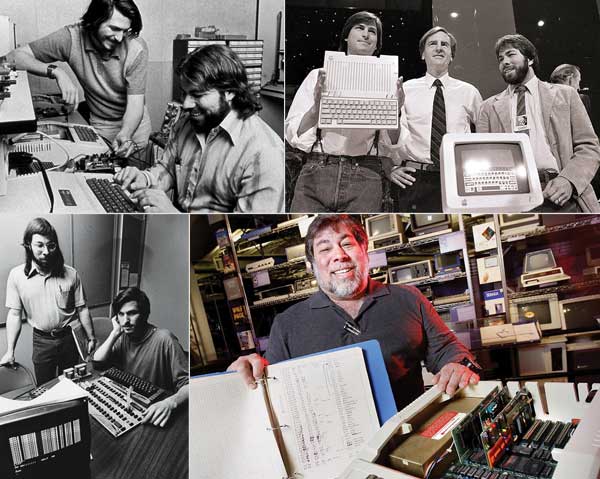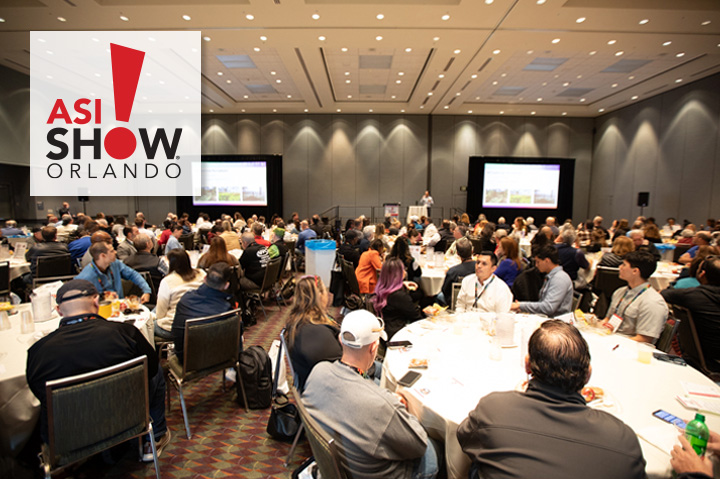Awards December 17, 2014
World According to Woz
An exclusive interview with Apple co-founder Steve Wozniak reveals his views on the future of technology and what will impact business the most.
As the man who single-handedly designed the first two computers sold by Apple – way back in the late 1970s and early 1980s – Steve Wozniak is uniquely equipped to predict how new technologies in the future will impact everyday life and how business is conducted. Right now, he’s drawn to speak-to-operate technologies that he believes will begin to rule how we function as a society.
“Once we get to the point where any technology can be fired up by the use of somebody’s voice, then we’ll really see tech take off,” said Wozniak, in an exclusive interview that Counselor conducted with the inventor and engineer in October. “But we’re not there yet.”
Of course not. Because somebody like Wozniak, who is always tinkering and inventing new products and new ways to operate various technologies, is constantly searching for the next big thing. And mostly what Wozniak focuses on are technologies that make life and business easier. It’s why he first created the Apple I, which he and Steve Jobs started selling in April 1976 when they formed Apple Computer.
“We just felt like computing should be so much easier than it was at the time,” says Wozniak, who often goes by the nickname The Woz. “You practically needed an engineering degree at the time to just turn on and operate a computer. We wanted to make the whole process of using computers so much easier.”
And that they certainly did. The company soon launched the Apple II, which became one of the first truly successful mass-produced personal computers in the early 1980s. But after more personal computer successes with Jobs at Apple, Wozniak decided to break away from the company so he could continue his lifelong passion for inventing and creating new things. By 1987, 12 years after he helped found one of the most successful technology companies of all time, Wozniak left to start new ventures.
What followed from Wozniak was a string of inventions – new GPS technology, the first universal remote control, and various new functions related to telecommunications. “I search for things that can be done better and easier, and then try to figure out how we can make it happen,” Wozniak says. “I’m forever searching for new things.”
And, sometimes that has even led him to film and television. He has been the star and subject of various documentaries related to his time at Apple, and he even made an appearance on The Big Bang Theory in 2010 and competed on Dancing With The Stars in the show’s eighth season in 2009 (he was voted out after four episodes). “I like trying new things,” Wozniak says. “The newer the better.”
In this Q&A, Wozniak opens up about his time at Apple and provides his views on what technologies will be most impactful in the years to come.
Counselor: What are some lessons you can share about innovation and creativity?
Wozniak: Innovation and creativity are words that have wide meaning and there’s a great difference…one of the things is computers cannot be innovative. Sometimes, people need to realize that it’s not the product that’s innovative, but the way it’s used or applied.
Counselor: Is that how you viewed the computer when you first started Apple?
Wozniak: Precisely. It’s not a thing that can really think on its own or innovate on its own, but we asked ourselves this: Is there a formula that makes this incredible tool that only the huge, large, powerful industries have, to make it available to all people? The computer itself wasn’t the innovation, but how it got booted up and how it could be used was the key. Other key items for us in the early stages of Apple were ways to build a useful device at the right price because there were a lot of people building worthless devices at the right price.
Counselor: How can others find the impetus for innovation like that?
Wozniak: There has to be a drive toward innovation. I knew I always wanted to create new things that made life easier for people. It was just intrinsic. But if you have the motivation for something then it starts to permeate all of your thought processes. I wanted to help a social revolution that was being spoken of where people would communicate and educate better than ever before. That was me, and it became part of everything I did. So, you have to have a drive behind innovation. You have to have some kind of end goal for what that innovation and creativity will ultimately look like.

Steve Wozniak (bottom, right), co-founder of Apple, shows off a 150-page notebook with his handwritten code for the Apple II computer at the Computer History Museum. Bottom left, Wozniak and Apple co-founder Steve Jobs display the Apple I, the product that launched one of the most famous brands in the world. Top left, along with Apple co-founder Steve Jobs, and top right, John Sculley (middle), the CEO of Apple who ultimately fired Jobs from the company.
Counselor: How do you think technology in general will change our lives within the next five years or so?
Wozniak: The trend in personal computers has been getting more and more personal, meaning working in human ways that we don’t have to think about steps to get the technology done. My favorite thing along those lines right now is speaking into the phone. You just speak into the phone to get directions or get questions answered, and I don’t have to think of a bunch of technological steps or procedures to get it done.
Counselor: Is this essentially where technology is going?
Wozniak: Absolutely. It’s all about ease of use when it comes to technology. The easier it is to use, the better it will be for our lives. This was a big step that even the mouse-based Macintosh gave to us. You didn’t have to memorize anything because it was all there with a click of the mouse.
Counselor: How will voice recognition play into this?
Wozniak: It’s all about understanding us and almost anything you think of in your head you don’t have to then think ‘what is the process on my machine to get it done’? You can just speak it, and I think that’s one of those one-way doors you don’t go back through again. Once we really have technology that can truly understand us and anticipate our needs – we’re close to that but we’re not there yet – then you’ll see the use of personal devices really explode to the point that they’re never out of our hands.
Counselor: What do you think companies need to do in the future to get better use out of technology?
Wozniak: They’re going to need to reduce the amount of rules they have. I’m just down on the rigid structure that many companies have in place today as it relates to technology.
Counselor: How should they change?
Wozniak: Here’s one example: They should allow employees to bring their own devices with them to work – laptops, phones, tablets. Most people have them today and they prefer to use their own stuff. So, let them bring their own devices and hook up to the network while they’re at the office.
Counselor: Isn’t security a problem with that approach?
Wozniak: It doesn’t have to be if it’s done correctly. You can always put protocols in place to ensure the safety of your network, but it doesn’t have to impact the physical device that people use. That should be their own choice. Technology is meant to be personal. Most companies don’t pay enough credence to that idea. They need to ask themselves: How would normal human beings want to use these items? Sometimes, they make it so difficult for employees that the employees end up just hating what they’re using. That’s anti-technology. Technology is supposed to make things easier.
Counselor: This is something you’re rather passionate about.
Wozniak: YES! Technology should make us masters of life, but for that to happen, it has to work and we have to want to use it. It has to work seamlessly in the way we want it to work. So, if anything gets in the way of that, then it defeats the whole purpose of technology being there in the first place.
Counselor: What other technologies do you think will have the most impact on companies moving forward?
Wozniak: The cloud will probably be the biggest immediately. There are too many powerful economic benefits for companies and organizations not to move their operations to the cloud. It’s efficient and easy to access from anywhere, so the virtual nature of business will become that much more important. But there are some major issues with it too.
Counselor: What are those?
Wozniak: Well, security for one. The hacking is out of control. When you put all of your company’s vital information and data on the cloud, you’re not in charge of the protection of it anymore. Some cloud-based service provider is. So, your valuables are out there for anybody to see and you have no control over them. That’s not good. Now, hackers can get into any database they want these days, but it’s easier for them to have access on the cloud.
Counselor: Anything else to worry about with the cloud?
Wozniak: Oh, there are always things to be concerned about when it comes to technology. Let’s say employees couldn’t get onto the Internet for a period of time – this, unfortunately, still happens. It will continue to get better, but we do indeed struggle with something this basic today. So, if they can’t get on the Internet, then they can’t access information on the cloud that they need. If everything is stored there, then productivity is completely shot. It’s something to think about for companies that are moving in a virtual direction.
Counselor: Apple has upended industries such as personal computers and music. What markets do you think are ripe to be upended by technology in the future?
Wozniak: Wow, it could be just about anything. Everything major in life can be improved or made easier by technology. That’s what’s happening now with payments. You can literally go around now and buy just about whatever you want without any cash. That’s a huge change that will continue to be improved by new technologies and services like Apple Pay. It’s actually not even really a technology, but more of a new service that’s made possible by technology.
Counselor: Anything else?
Wozniak: It could almost be anything that’s an everyday part of our lives. Coffee makers. They could be made better by being able to virtually program them to prepare coffee, and have it hot whenever you want it, without really having to think about it in advance. Another one is lighting and energy in people’s homes. This will all be controlled by technology very soon. It’s the Internet of things. The home is the frontier for it right now, but it will be expanded to offices and schools and corporate environments very soon too.
Counselor: What about something that will truly change the way our lives work?
Wozniak: Automated cars. It will happen, and I know Google and also Tesla are trying to create cars that can drive by themselves. Think of how that’ll change life. It would be so different than anything we currently know, but the capabilities are coming.
Counselor: Are we ready for that?
Wozniak: No, probably not. But the next generation definitely will be.
Counselor: What’s your view of the wearables technology market?
Wozniak: I like it because I like to experiment with new things. I’m not really a fan of the smart watches, though. The Bluetooth aspect of it just kind of gets in the way. It goes back to my point earlier about technology making things easier. Does a smart watch actually do anything that the phone that’s already in my hand can’t do? Not really. Same with the fit bands. They’re functional, but you can have an app on your phone that tracks the same things. If I’m going to use a new technology, I want it to make a part of my life easier that isn’t already being made easier by something else. I’ll stick with my phone for those things.
Counselor: How about the Google Glass-type products that are out there?
Wozniak: Now that’s cool. I’ve tested those kinds of things a few times, and there is definitely a cool factor to it. But I doubt it will get mass adoption because there’s just nothing there to justify the $1,500 price point. It’s cool, but it’s kind of odd to use. You can record video and take pictures with it and store things on it, but I just don’t think there are enough applications to everyday life to make it something that most consumers would want. Cool? Yes. But it’s not essential to everyday life. Phones do all those things too.
Counselor: What do leaders need to do to inspire innovation and creativity?
Wozniak: First, hire creative and interested people. When you’re interviewing, have them talk about projects they created and saw through to completion. You need people who are interested in trying new things, so make them show you how they’ve done that in previous jobs or roles. They don’t need to have the exact experience you’re looking for, but they really should prove that they can create and complete projects.
Counselor: And then, how about once they’re hired?
Wozniak: Give them a good and rewarding work environment. Let people work on their own ideas. Give them extra education. And, don’t just force your way onto them. Let them breathe.
Counselor: Finally, what did you learn from your Dancing With the Stars experience?
Wozniak: When you work hard at a completely new thing, and you find some level of success, it’s the most rewarding and happiest thing you can do in life. Getting forced out of your comfort zone makes you work really hard at something to succeed at all at it. It was a great experience.
Sponsored Content

Increase Productivity And Enhance Your Customer’s Brand
ANTI-FATIGUE Anti-fatigue mats are a great solution for a variety of applications....

The Perfect Banner For Every Situation
To close a sale, you need to direct your client to the perfect solution for their...
SPONSORED BY:
Wholesale Banners Online

5 Terms That Will Increase Your Performance Workwear Sales
When you present workwear, buyers want to hear how the apparel will perform on the...




